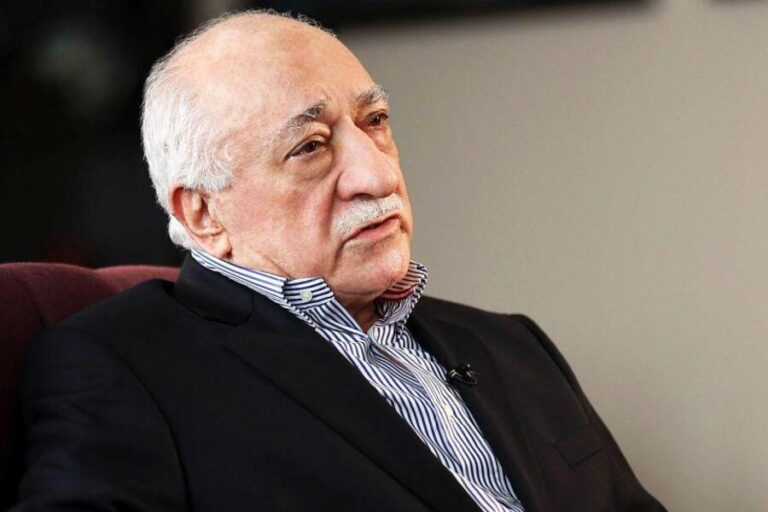Fethullah Gülen, the self-exiled Islamic cleric whose influence spanned continents, died on Monday at his secluded compound in Pennsylvania’s Pocono Mountains. He was in his eighties and had been in poor health for some time. Gülen’s passing marks the end of an era for a movement that has been both praised for its promotion of education and dialogue and condemned by the Turkish government as a “dark organization” linked to terrorism.
Abdullah Bozkurt, a former editor of the Gülen-affiliated newspaper Today’s Zaman, confirmed Gülen’s death after speaking with Gülen’s nephew, Kemal Gülen. Turkish Foreign Minister Hakan Fidan also acknowledged the cleric’s passing, stating that it was verified through intelligence channels. “The leader of this dark organization has died,” Fidan said, adding that Turkey’s efforts against Gülen’s followers would continue.
Fethullah Gülen’s journey from an influential imam in Turkey to a global religious leader in self-exile began decades ago. Originally from Erzurum in eastern Turkey, Gülen rose to prominence in the 1980s, preaching a message that combined traditional Islamic values with modern education, scientific progress, and interfaith dialogue. His movement, known as Hizmet (Turkish for “service”), grew into a global network, establishing schools, media outlets, and charities in over 100 countries, including a notable presence in the United States.
Despite his advocacy for education and peace, Gülen’s life was marred by controversy. In 1999, he moved to the United States for medical treatment, shortly before Turkish authorities accused him of plotting to overthrow the country’s secular government. Though acquitted of those charges, he never returned to Turkey, choosing instead to lead his movement from afar.
Initially, Gülen was an ally of Turkish President Recep Tayyip Erdogan. Both shared a vision of modernizing Turkey while respecting its Islamic heritage. However, the relationship soured as the movement began criticizing Erdogan’s policies and exposing alleged corruption within his administration. Tensions escalated, with Erdogan accusing Gülen of setting up a “parallel state” within Turkey’s judiciary, military, and police.
The conflict reached a peak on July 15, 2016, when factions within the Turkish military attempted to overthrow Erdogan’s government. Tanks rolled through the streets, warplanes bombed government buildings, and soldiers clashed with citizens. More than 250 people were killed, and thousands were injured before the coup was suppressed. The Turkish government quickly pointed to Gülen as the mastermind behind the attempt, a charge he and his followers have repeatedly denied.
From his compound in Pennsylvania, Gülen continued to lead his followers, maintaining that his philosophy promoted peace and education, not violence. He rejected the accusations of terrorism, calling them politically motivated. Despite Turkey’s demands for extradition, the United States did not send him back, citing insufficient evidence. He was never charged with any crime in the U.S.
“Hundreds of thousands of innocent Turkish citizens are being punished simply because the government decides they are somehow ‘connected’ to me or the Hizmet movement,” Gülen said on the first anniversary of the coup attempt. He consistently denounced the violence of the failed coup, calling for accountability within peaceful, legal means.
Following the failed coup, the Turkish government launched a sweeping crackdown on individuals suspected of being connected to Gülen. Over 130,000 civil servants, military personnel, and judges were dismissed or arrested, and hundreds of businesses and media outlets linked to the movement were shut down. The government labeled the movement as the “Fethullah Terrorist Organization” (FETO).
On Monday, Foreign Minister Fidan made it clear that Gülen’s death would not alter Turkey’s stance. “This organization has been a threat rarely seen in the history of our nation,” he said. “Our nation, our state, will continue to fight against this organization as they do with all kinds of terrorist organizations.”
Gülen’s death leaves the future of the Hizmet movement uncertain. Over the years, his followers have established a network of schools, cultural centers, and media organizations that extend far beyond Turkey. However, the movement has struggled under increasing pressure, both in Turkey and internationally. Many members have faced persecution, with some fleeing to Europe, North America, and other regions to avoid arrest.
Alp Aslandogan, head of a New York-based group that promotes Gülen’s ideas, expressed deep sadness at the news. “He dedicated his life to fostering understanding, education, and dialogue,” Aslandogan said. “The movement will carry on his vision, but his loss is irreplaceable.”
